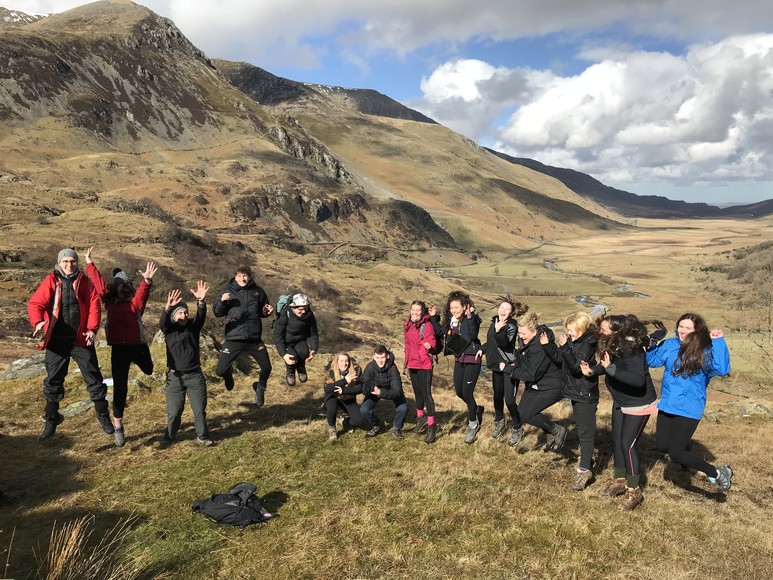Geography

Curriculum Statement: Geography
‘We all know that the minute you walk out the front door, you are looking at Geography. We’re all living in a Geographical World.’ Nicholas Crane – President, RGS – IBG
Curriculum Aims:
Geography at JHN is a subject that encompasses the complexity of the world we live in. In light of this, we aim to empower our pupils to recognise the awe and wonder of the world God created.
Geography is challenging, motivating, topical and engaging. In our diverse society students need, more than ever before, to understand other people and cultures. Concepts and skills are essential components of a broad and balanced curriculum. Geography makes a major contribution to students’ physical, intellectual, social and emotional development. As Professor Andrew Goudie puts it, “What other subject tells us so much about the great issues of our age?”
Geography, as a subject, links to the wider school curriculum by using subjects such as Science, Maths and History to make sense of the world around us. As a department, we wish to:
- Ensure pupils and students gain knowledge of both the natural and human world in which we live by looking at key concepts such a space and place (understanding what the world is like on a variety of scales and how we interact with these places). We also use our knowledge to investigate and develop a cultural understanding of the world in which we live. There are many misconceptions about our world and we want pupils and students to have a good understanding to be able to form their own opinions about the world in which they live.
- Give pupils the tools to engage in analysing this knowledge to become critical thinkers and to constantly question the world around them by investigating different countries, theories and ideas.
- Provide pupils with challenging and inspiring materials to engage in their learning.
- Enabling all pupils and students to contribute to their world in a meaningful and positive way by creating citizens of the world by making sure our pupils and students can adapt to our ever-changing planet by accepting that change is inevitable but by also critiquing the changes that occur around them.
Curriculum Features:
The main aim of the Geography curriculum is to enable our pupils and students to become successful learners and confident individuals.
To support a Geographer’s development, we practice many skills and concepts such as encouraging pupils and students to be independent enquirers by giving them enquiry questions when covering key topics. Through class investigations and fieldwork, we develop team work and ensure that pupils participate and are fully involved in our questions about the world around us. Pupils and students enjoy bringing the theories and geographical skills we have learnt about in the classroom to life on field trips. They are able to develop both their geographical skills and their personal skills through our ability to combine the outdoors with the classroom.
As the pupils and students move through the key stages they become more independent and take ownership of their investigations and their studies, and this leads to them becoming more reflective learners.
Whilst studying Geography, the curriculum develops a number of different skills that we build on at each key stage. We start with learning basic geographical skills such as enquiry questions, map skills, understanding the difference between social, economic and environmental effects. These skills form a good foundation as pupils and students progress through to GCSE and A Level Geography. We look at what a JHN Geographer should look like when they leave us and ensure we develop and link the work we do in each key stage to ensure they finish Key Stage 5 the best Geographer they can be. The skills that pupils and students learn in Geography are transferable and can be used across a wide range of subjects such as Science, English and Maths.
We study a range of key Geographical concepts including, climate change and sustainability, global development, changing landscapes and geopolitics. By studying these concepts, it allows students to recognise and understand our ever-changing and dynamic world.
Co-curricular experiences:
Geography, as a subject, lends itself to many different experiences, most importantly field work, and our trips to Kew Gardens, North Norfolk and North Wales allow the knowledge and skills learnt at school to be developed outside the classroom environment.
The proposed 2024 trip to Iceland is also an opportunity for students to build on their passion for Geography and see how our landscape is changing.
Geography, as a subject, also allows us to work with outside speakers and companies, e.g. Willmott Dixon, where pupils and students have been designing a sustainable outside eating area for one of their local sites. We work with Herts Highways, Affinity Water and, more recently, with CurieUs Games, testing a new renewable energy game.
What follows is a current summary of the intended subject curriculum content in each year of the key stage. It highlights the key knowledge and skills intended for learning, and some of the ways progress in the curriculum is to be assessed. It clarifies the key questions students should be addressing and gives links to help students and families to develop this learning further.
KS3
KS4
KS5
A Level Geography is also a popular course and follows the Edexcel A level Geography specification
Topics studied build on the knowledge and skills acquired at Key Stage 4 whilst also encouraging more critical thinking and independent learning.
The course includes a variety of specialist topics within the broad study areas of:
- Dynamic landscapes including tectonic processes and hazards
- Dynamic places including globalisation
- Physical systems and sustainability including water and energy security
- Global development and connections including superpowers



